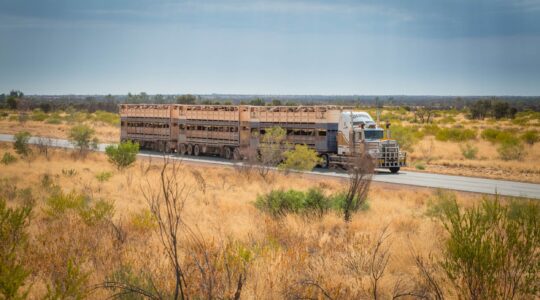Three Federal Government energy bills recently introduced into Parliament will have serious implications and deserve closer scrutiny, according to a leading national employer association.
The Australian Industry Group believes the major bills are complex and “have clear and serious implications for businesses, households, workers and communities”.
Ai Group Chief Executive Innes Willox said the bills relating to cars, disclosure and economic transition filled important gaps on a transition to a net zero economy.
“While there have already been consultation processes on previous versions of the New Vehicle Efficiency Standard (NVES) and Climate Related Financial Disclosures (CRFD) legislation, and on elements of the Net Zero Economy Authority (NZEA) Bill, it will be important for Parliament and stakeholders to digest the full text as proposed and identify any remaining anomalies or weaknesses,” Mr Willox said.
“The issues of cleaner more cost-effective transport, clearer climate information for investors and businesses, and a fairer and more coordinated approach to the economic transition are too important to go unaddressed.”
He said the proposed NVES was more moderate than the previous version.
“It addresses issues raised by industry about consistency with the final version of the United States’ equivalent standards, and the need to avoid a risk of inadequate model availability for light commercial vehicles,” Mr Willox said.
“Further analysis is needed to ensure that is the case, and that there is no risk of perverse incentives given the gap between the standards for passenger vehicles and light commercial vehicles.”
Mr Willox said the CRFD proposal wisely pushed back the start date of mandatory reporting to at least January 2025, and potentially as late as July 2026, depending on when the legislation passed.
“This is important to give impacted businesses time to prepare for the final version of their new obligations. Enhancements to the limited immunity for some elements of the disclosures should ensure that ASIC can respond to bad practice without a flood of litigation on debatable points,” he said.
“Meanwhile, extending disclosure obligations to the major investors who have been calling for disclosure by other businesses seems only fair. However, this is a complex set of amendments to the Corporations Act, and we will continue to scrutinise it.”
He said the NZEA was the culmination of several years of advocacy by many constituencies, including business generally and Ai Group in particular, for a national body that would help ensure a fair and joined-up approach to the inevitable closures of regionally significant high-emissions facilities as the Australian and global economies decarbonise.
“New clean economy opportunities have appeal and much of our existing economy can transition with appropriate investment; but acute impacts from specific closures, such as coal fired power stations, need to be much better addressed in future than they have been in the past.
“The proposed Authority is a positive step towards that goal, with roles including facilitating efforts across government and industry to diversify affected regional economies and to ensure individual affected workers can keep their skills available by transitioning to new employment where appropriate. The specifics of the latter will need very close scrutiny.
“There are very obvious industrial relations impacts inherent in the transition. We need to ensure that the legislation provides sufficient clarity to employers and employees and minimises the likelihood of costly disputes in the Fair Work Commission over issues that should be dealt with co-operatively instead.
“Careful thought is needed on how the proposed Section 59 obligations and related FWC orders interact with existing regulation of employee entitlements.
“In the wider economy, many employers and employees have already addressed through enterprise agreements the question of support for employees whose positions have been made redundant. Industry Awards also already deal with some of the issues contemplated by the Bill. The Bill seeks to clarify this interaction but we are not yet confident that it succeeds,” Mr Willox said.








